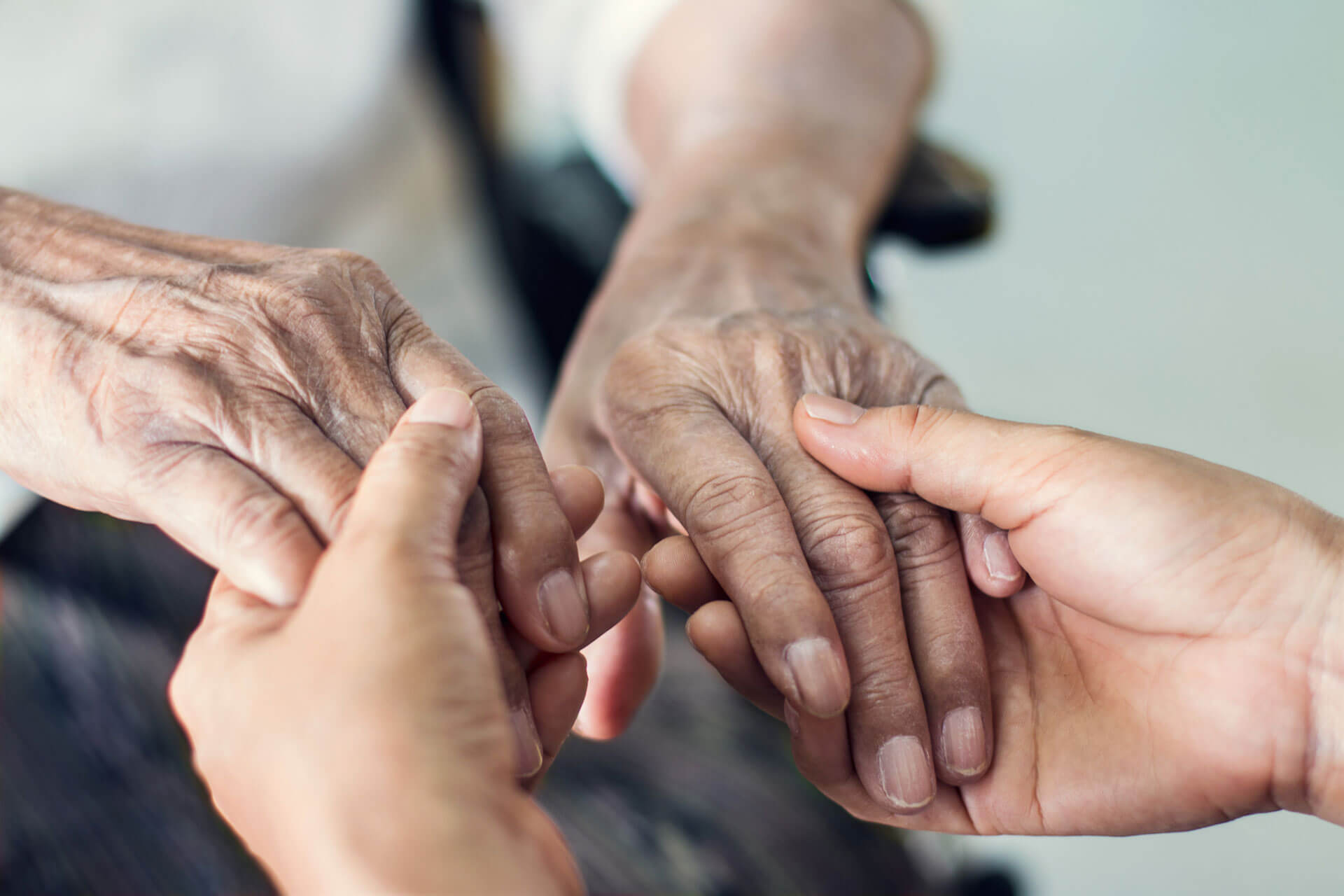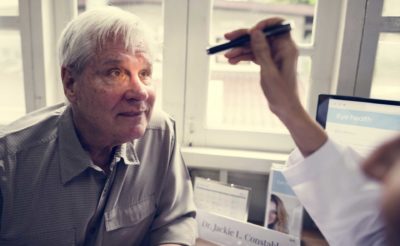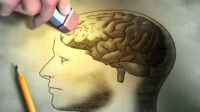The sad and scary truth is: 5.7 million Americans are living with Alzheimer’s disease. Over the next 30 years that number is expected to nearly triple (14 million by 2050). The impact of the disease extends far and wide, impacting family members and friends who serve as caregivers. In fact, it’s estimated that 16.1 million Americans provide unpaid care for people with Alzheimer’s and other types of dementia. As the US population ages, you are going to see patients with Alzheimer’s and Dementia, and their family members, more and more frequently. How do you explain the differences between Alzheimer’s, Dementia and natural age-related memory loss to patients and their families?
Widespread awareness of Alzheimer’s has caused most people to know its basic signs and symptoms – that’s a good thing. However, it has also caused many to assume that any memory loss must be Alzheimer’s; that’s not a good thing. Few people know that Alzheimer’s disease is just one type of dementia and that age-related memory loss does exist.
Breaking It Down
There are simple, respectful ways to describe the difference between Alzheimer’s and memory loss to a patient and his or her family:
1:
- When people have age-related memory loss, they may forget where they placed their keys.
- When people have Alzheimer’s, they forget what the keys are for.
2:
- When people have age-related memory loss, they may forget that they had ice cream for lunch.
- When people have Alzheimer’s, they forget they like ice cream.
3:
- When people have age-related memory loss, they may forget a person’s name, but they remember it within a few hours.
- When people have Alzheimer’s, they forget a person’s name, who they are and the relationship they have with them, i.e. friend, son, daughter, spouse.
As a physician, you are the first to encounter patients and family members who may be concerned about memory loss. Here is a primer to help them understand what they may be witnessing.
Alzheimer’s Disease
Alzheimer’s is the most prevalent type of dementia. According to the Alzheimer’s Association, it accounts for 60-80% of all types of dementia.
The most common early symptom of Alzheimer’s is difficulty remembering newly learned information because Alzheimer’s changes typically begin in the part of the brain that affects learning. As Alzheimer’s advances through the brain it leads to increasingly severe symptoms:
- Disorientation
- Mood and behavior changes
- Deepening confusion about events, time and place
- Unfounded suspicions about family, friends and professional caregivers
- More serious memory loss and behavior changes
- Outbursts and agitation
- Personality changes and aggression
- Difficulty speaking, swallowing and walking
10 Early Signs of Alzheimer’s
You can give your patients and their family members a guide by which to understand the signs and symptoms they are witnessing. This will help them to gather more concrete information.
- Does their loved one exhibit memory loss that disrupts daily life? Are they asking for the same information over and over?
- Are they beginning to have problems with planning? Are they forgetting important dates, events, regularly scheduled outings or appointments that they have participated in regularly for years?
- Are they having difficulty completing familiar tasks like driving a familiar route or remembering the rules of a familiar game?
- Are they losing track of the passage of time, or forgetting where they are or how they got there?
- Are they having trouble processing visual images? Alzheimer’s disease can cause difficulties with reading, determining colors, judging distances.
- Alzheimer’s disease can cause problems with written or oral speech. The person may stop in the middle of a sentence and not know how to continue. They may not be able to retrieve words for common objects, or they may call it by the wrong name. (A sneaker may become a “foot-shoe”.)
- Are they placing objects in strange places? A person with Alzheimer’s disease may place car keys in the freezer or ice cream in the cupboard. They may lose things and be unable to figure out how to retrace their steps to find them.
- Alzheimer’s can cause poor judgment. The person may give large amounts of money to telemarketers or ask strangers for food. Personal grooming may deteriorate.
- Are they becoming socially isolated, removing themselves from social activities, work projects, sports? Are they forgetting how to conduct a favorite hobby?
- Are they exhibiting changes in mood and personality, becoming suspicious, anxious, easily upset, paranoid, confused?
Dementia
There are several different types of dementia; Alzheimer’s disease is just one type. Dementia is a diagnosis of a collection of symptoms, including memory loss. It is not a normal part of aging.
Many of the signs and symptoms of dementia are similar to Alzheimer’s disease. Only a comprehensive physical and mental assessment, as well as the collection of anecdotal information from the patient and family members, can lead to a diagnosis of dementia and then the identification of a specific type. Some of these can be treated and reversed. The different types of dementia are as follows:
- Alzheimer’s disease
- Lewy Body dementia
- Vascular dementia; occurs after a stroke
- Dementia caused by Parkinson’s disease
- Dementia caused by Huntington’s disease
- Frontotemporal Dementia; has several subtypes, affects only the frontal lobe of the brain
- Normal pressure hydrocephalus: caused by a buildup of cerebrospinal fluid in the ventricles of the brain
- Creutzfeldt-Jakob disease: degeneration of brain capacity, ultimately leads to death
- Wernicke-Korsakoff syndrome: Results from thiamine (vitamin B1) deficiency, related to alcohol abuse
- Mixed dementia: exhibit symptoms of more than one type of dementia at once
Age-Related Memory Loss
As the brain ages and the neurons fire more slowly, or not all, memory loss can occur. The signs and symptoms of age-related memory loss include the following:
- The person sometimes forgets names of people or regularly scheduled appointments but remembers them later.
- Occasionally needs help to record a television show or conduct a function on the computer but generally remembers how to operate the technology.
- Forgets what day of the week or date it is but recalls it soon thereafter.
- Misplaces belongings occasionally but can retrace his or her steps to find them.
- Becomes set in his or her daily routine and may become irritable if requested to change it.
However, it’s important to remember that a person with age-related memory loss retains the ability to reason, understand the course of events, and the progression of time. The person remembers relationships and how individuals are connected to them as friends or family members.
To the extent that you can help patients and their families to back away from erroneous assumptions that any memory loss is Alzheimer’s disease, you can reduce anxiety and increase understanding. If the patient and/or family members can determine if they are witnessing Alzheimer’s disease, dementia or age-related memory loss, they can make the right lifestyle and environmental adjustments and seek proper treatment. As a physician, you are on the front lines, and the most important person to know and deliver this information.







